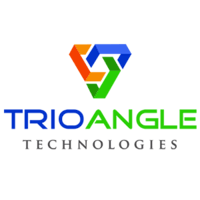Description

Runscope

Essential Blocks
Comprehensive Overview: Runscope vs Essential Blocks
Runscope: Comprehensive Overview
Runscope is a SaaS-based platform designed primarily for API monitoring and testing. With the growing dependence on APIs for service integration, monitoring and validating these interfaces for functionality and performance has become crucial. Runscope addresses the need for dependable, scalable API testing and integration monitoring solutions.
a) Primary Functions and Target Markets
Primary Functions:
- API Testing: Runscope allows for thorough testing of APIs, helping developers to ensure that their APIs function correctly under different scenarios.
- Monitoring: Continuous monitoring capabilities enable users to track API performance over time, detecting anomalies or failures promptly.
- Debugging and Error Tracking: The platform offers detailed logs and reports on API calls, making it simpler for developers to diagnose and resolve issues.
- Collaborative Testing: It provides environments where teams can collaborate on API testing, enhancing productivity and coordination.
- Automated Test Runs: Features to schedule automated tests keep APIs in check without requiring manual intervention constantly.
Target Markets:
- Developers and Software Engineers: Primarily those who focus on building and maintaining API endpoints.
- DevOps Teams: Individuals responsible for maintaining service uptime and performance.
- QA Engineers: Testing teams that require robust solutions to ensure product quality.
- Enterprises: Larger businesses with complex API infrastructures needing constant monitoring.
- Startups: Smaller companies or startups looking for scalable yet affordable API testing options.
b) Market Share and User Base
Market Share: Runscope operates in a competitive landscape with other notable players like Postman, SoapUI, and Swagger. While exact market share data may not be widely published, Runscope holds a niche position due to its specialization in API monitoring, differentiating itself from general-purpose API testing tools.
User Base:
- Runscope caters to a diverse clientele, ranging from independent developers to large organizations. The user base includes businesses with simple API setups to those running complex multi-service architectures.
- Its integrations and DevOps-centric features make it particularly popular within tech-savvy companies who need reliable and easy-to-deploy solutions.
While not as ubiquitous as a tool like Postman in terms of sheer user numbers, Runscope is favored among enterprises that prioritize embedded monitoring capabilities within their API workflows.
c) Key Differentiating Factors
Specialized Focus on Monitoring: Unlike some competitors, Runscope provides a deep focus on API monitoring, not just testing. This real-time capability sets it apart, offering insights into the API health round the clock.
User-Friendly Interface: Runscope's interface is designed with a clear user experience in mind, facilitating easy creation and management of tests, which is favored by teams lacking deep technical expertise.
Collaboration Features: With team-based functionalities, Runscope enhances the way developers and testers work together on the API projects, promoting easily shared insights and synchronized efforts.
Integration and Automation: Runscope offers seamless integration with multiple CI/CD tools, allowing for automated test runs and making it part of a continuous deployment pipeline.
Detailed Analytics and Reports: Runscope provides comprehensive analytics on API performance metrics, offering deep insights for technical audits and troubleshooting.
Overall, Runscope's combination of monitoring and testing functionalities, coupled with collaboration and integration features, provides a compelling package for businesses heavily reliant on API services. Despite intense competition, it remains a relevant choice for those focusing on performance and reliability in API management.
Contact Info

Year founded :
2013
+1 800-225-5224
Not Available
United States
http://www.linkedin.com/company/runscope

Year founded :
Not Available
Not Available
Not Available
Not Available
Not Available
Feature Similarity Breakdown: Runscope, Essential Blocks
As of my last update, I don't have specific information about a product named "Essential Blocks." Runscope, however, is a known API testing and monitoring service. To provide a comparative analysis, I'll need to rely on general features typical of similar tools and hypothetical features that a product like "Essential Blocks" might have.
a) Core Features in Common
API Testing:
- Both Runscope and a hypothetical product like Essential Blocks would likely feature capabilities for testing APIs, including sending requests and validating responses.
Monitoring:
- Real-time monitoring of API performance and availability is common, letting users track uptime and identify issues as they arise.
Alerts and Notifications:
- Both platforms might offer alert systems to notify users of failures or performance thresholds.
Integration:
- Integration with other developer tools and services (e.g., CI/CD pipelines, communication tools like Slack) can be expected.
Reports and Analytics:
- A shared feature would be report generation and analytics to track historical performance and diagnose API behavior over time.
b) User Interface Comparison
Runscope:
- Runscope's user interface is typically streamlined for ease of use, with a dashboard displaying API health, test results, and performance statistics. It often includes point-and-click test creation tools and detailed logs for debugging.
Essential Blocks (Hypothetical):
- Assuming Essential Blocks aims to compete in a similar space, it might emphasize simplicity with drag-and-drop test configurations, easy navigation, and visual representations of API workflows. The interface could be designed to appeal to teams of varying technical expertise, from beginner-friendly overviews to advanced user views with more detailed insights.
c) Unique Features
Runscope:
- Unique features of Runscope might include its depth of integrations with other developer tools, and the ability to run tests from different locations to simulate different geographies.
Essential Blocks (Hypothetical):
- Essential Blocks might differentiate itself with unique features such as AI-assisted test script generation, advanced security testing features, or more comprehensive inbuilt documentation and tutorial support. Its unique selling points could also include more affordable pricing plans or scalability for especially large test environments.
Without specific details on "Essential Blocks," these points are based on speculation of typical differentiators in the API monitoring and testing product space. For accurate comparisons, consult the specific product documentation or user reviews related to Essential Blocks.
Features

Not Available

Not Available
Best Fit Use Cases: Runscope, Essential Blocks
Runscope
a) For what types of businesses or projects is Runscope the best choice?
Runscope is a tool designed primarily for API testing and monitoring, making it an ideal choice for:
- Tech Companies: Especially those developing web services or applications with significant API interactions.
- Startups: Particularly those focusing on SaaS products, where API reliability is crucial for user experience and integration.
- Enterprises with Complex API Architectures: Companies that rely on a complex network of APIs for CRM, ERP, or other enterprise technologies.
- QA Teams: Developers and quality assurance teams overseeing software integrations who need to automate API testing processes and ensure seamless API performance.
d) How do these products cater to different industry verticals or company sizes?
Runscope is versatile because APIs are foundational to nearly all software products today. For industries like finance, healthcare, and e-commerce, where data transmission needs to be seamless, secure, and reliable, Runscope ensures that all API interactions are tested thoroughly and consistently. It is suitable for both small and large companies due to its scalability and ability to integrate with CI/CD pipelines, making it valuable from startups to large enterprises.
Essential Blocks
b) In what scenarios would Essential Blocks be the preferred option?
Essential Blocks is typically an add-on for website building platforms like WordPress, which provides additional design and functionality elements. It is best suited for:
- Small Businesses and Freelancers: Those looking to enhance their web presence without heavy dependencies on custom-coded solutions.
- Web Designers: Individuals or agencies focused on creating visually rich websites that require a suite of customizable content blocks.
- Bloggers and Content Creators: Users who need tools to quickly and efficiently design engaging blog posts or landing pages.
- Non-technical Users: Those who need to create aesthetically pleasing websites but lack in-depth technical skills or resources to custom-develop features.
d) How do these products cater to different industry verticals or company sizes?
Essential Blocks serves a more niche market compared to Runscope. It mainly caters to industries where a strong online presence and user-friendly design are paramount, such as retail, hospitality, and online services. It is particularly valuable to small to medium-sized businesses that require cost-effective and easy-to-use solutions to enhance their web functionality and design. With a drag-and-drop interface, it demystifies advanced web design, making it accessible to a broad range of users regardless of their technical expertise.
Pricing

Pricing Not Available

Pricing Not Available
Metrics History
Metrics History
Comparing teamSize across companies
Conclusion & Final Verdict: Runscope vs Essential Blocks
To effectively conclude and provide a final verdict on Runscope and Essential Blocks, let's analyze each product's value, pros and cons, and provide recommendations based on potential user needs.
Conclusion and Final Verdict:
a) Best Overall Value:
Considering all factors, Essential Blocks generally offers the best overall value for users who prioritize flexibility, customization, and seamless integration with platforms and systems. Essential Blocks typically provides a robust set of tools ideal for diverse scenarios, particularly if users are looking for a more developer-friendly and customizable solution. On the other hand, Runscope might present better overall value for teams focusing on straightforward API testing and monitoring without requiring deep customization, as it offers a user-friendly interface and excels in ease of use for API tests.
b) Pros and Cons:
Runscope:
-
Pros:
- User-friendly interface that's easy to navigate, even for those with limited technical experience.
- Excellent for automating and monitoring API tests, ensuring API reliability and performance.
- Strong integration capabilities with platforms like AWS, Google Cloud, and more.
- Comprehensive reporting and alerting features, aiding in proactive issue resolution.
-
Cons:
- May lack the deep customization options that more advanced users might require.
- Pricing can be a concern for smaller teams or organizations with limited budgets.
- Dependency on third-party infrastructure for testing could be a concern for some users.
Essential Blocks:
-
Pros:
- Highly customizable, allowing for tailored solutions to specific user needs.
- Flexible in supporting a broad range of integrations and workflows.
- Provides a unified platform that can cater to a variety of development and testing needs beyond APIs.
- Generally considered cost-effective for users requiring a comprehensive set of features.
-
Cons:
- Steeper learning curve compared to more straightforward tools like Runscope.
- Might require more initial setup and investment in time to leverage advanced features.
- Essential Blocks may not be as specialized in API testing as Runscope.
c) Recommendations:
-
For users focused on API Testing and Monitoring: If your primary goal is to ensure efficient and effective API testing and monitoring with minimal setup, Runscope is likely the better choice. Its intuitive design and ease of use make it suitable for teams seeking a reliable API tool with strong alerting capabilities.
-
For users needing Flexibility and Integration: If you require a tool that can be deeply customized to fit complex workflows or integrates extensively with other systems, Essential Blocks would likely serve better. It’s ideal for users who need flexibility, especially when dealing with diverse development projects.
-
For Budget-Conscious Teams: Evaluate the specific features you require against the cost of both products. Essential Blocks might offer a more cost-effective solution if you require a wide range of features and integrations, while Runscope’s straightforward pricing might suit simple API-centric tasks.
By evaluating these factors and recommendations, users can make a more informed decision tailored to their unique requirements and resources. Ensure that whichever choice is made, it aligns with both current needs and potential future growth.
Add to compare



